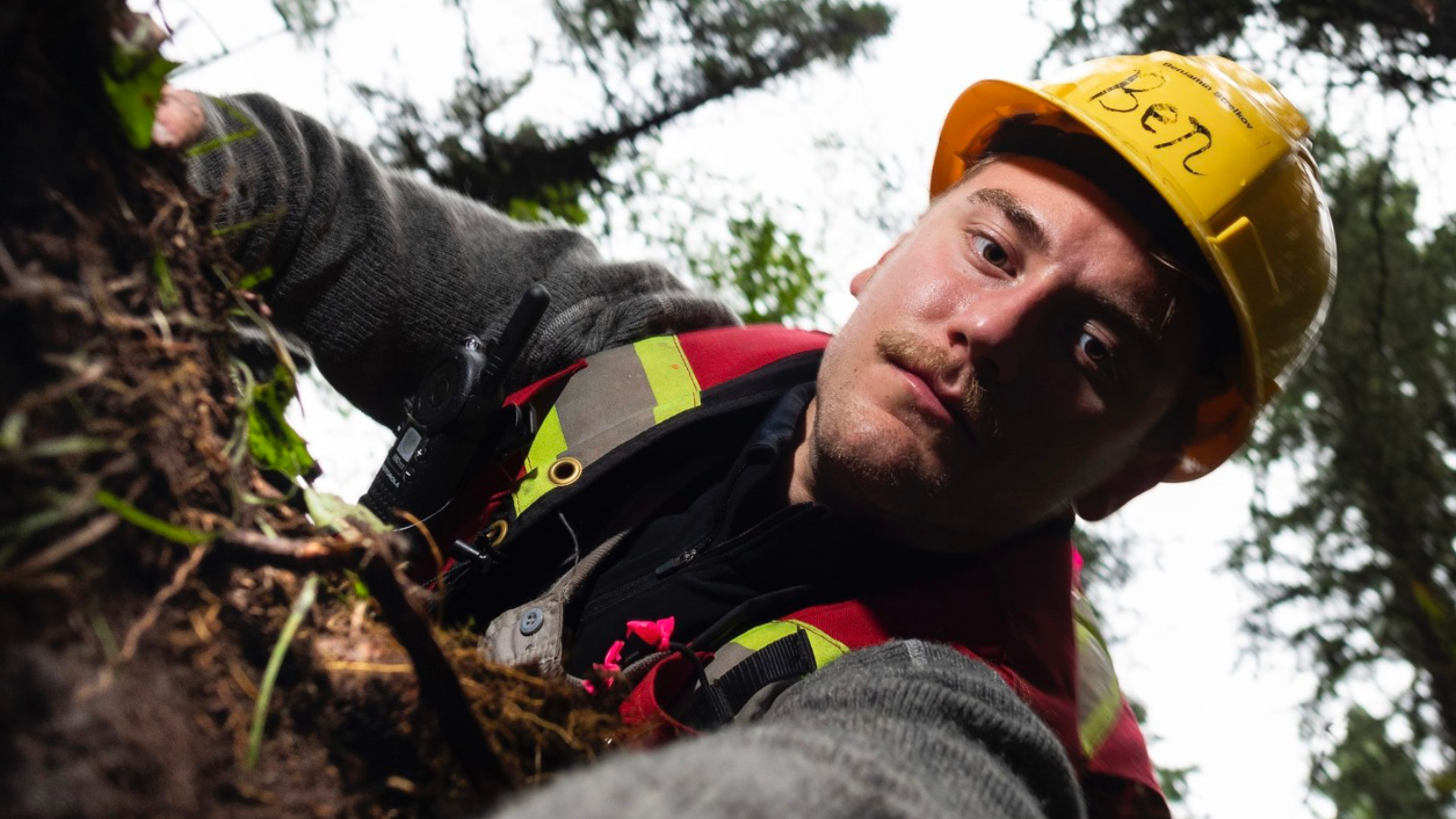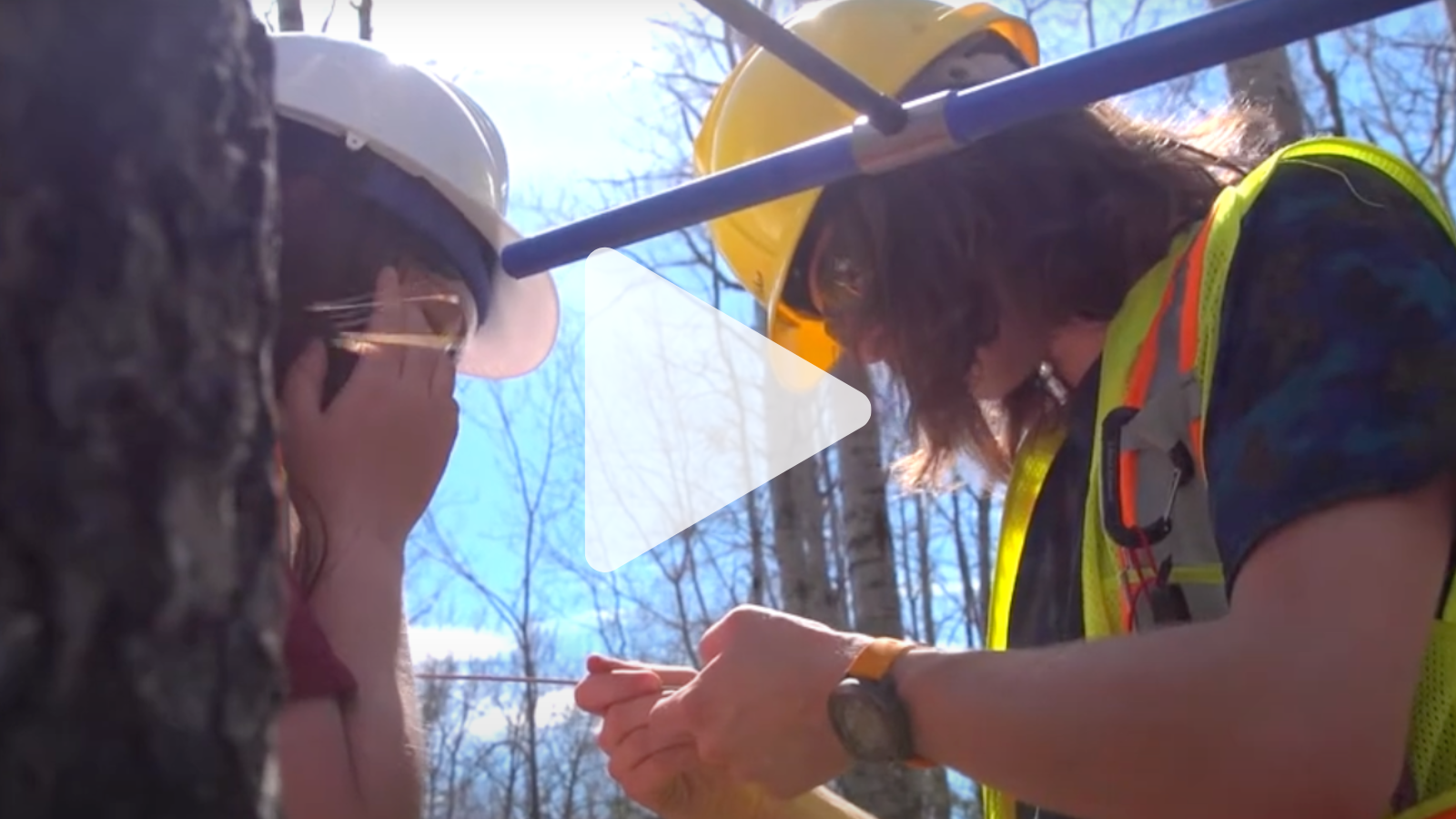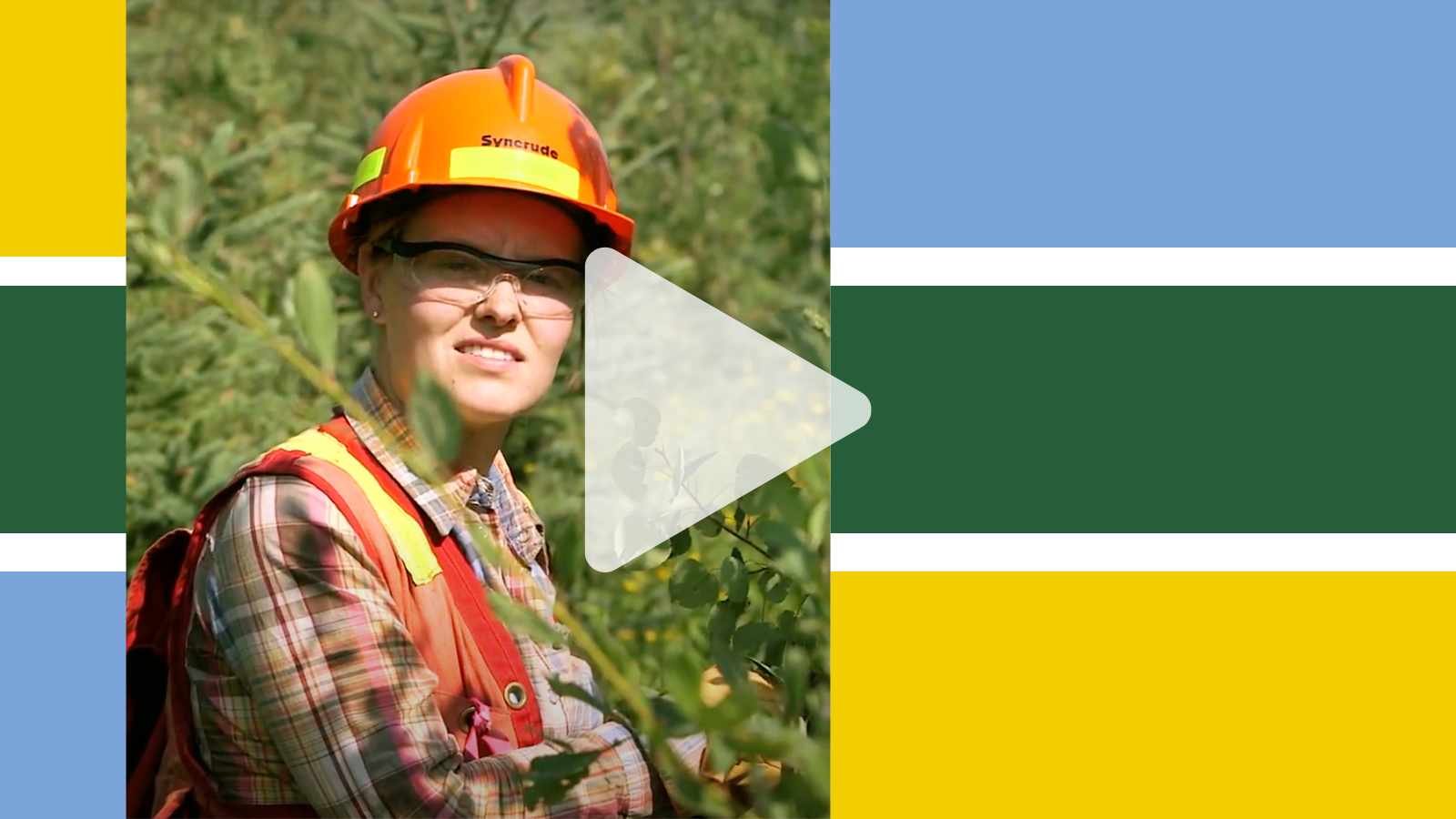Bachelor of Science in Forestry

Why Study Forestry?
Around 61% of Alberta is forested, and we need knowledgeable leaders to manage these essential areas as integrated ecological entities for long-term wellbeing.
The forestry program will prepare you for a dynamic career as a leader in environmental sustainability. You’ll learn to manage forest landscapes for not only timber but also ecological, social and cultural values. Courses will cover forest management, silviculture, forest policy, conservation and ecology. Graduates will emerge prepared for a future career as a registered professional forester (RPF).
Hands-on Learning
In this program, you’ll study forestry in the best place possible — the forest. Gain practical hands-on experience through Renewable Resources field schools, where you will learn about forestry operations first-hand, develop your technical skills, and get to know your fellow students. Field schools include travel through the forested areas of west-central and northern Alberta to learn about forest plants, animals and ecology, forest protection and field operations — including harvesting and silviculture. You will also meet forest practitioners and professionals, many of whom have participated in field school themselves!
“As a forester, it feels really good to work in an area where I can use the skills I learned to help the environment.…”
- Forestry alumna Amanda explains why she chose the forestry program, and how her childhood time in the forest inspired a future career.
Featured Courses
Feature Careers
Foresters plan, administer and direct programs related to managing forested lands and renewable resources. Forestry is a regulated profession. Graduates from the BSc in Forestry qualify as a Registered Professional Forester (RPF). Average Salary: $94,619
Forest technologists perform many of the technical functions involved in the scientific management of forested areas. Average Salary: $68,069.00
Hydrologists study the occurrence, distribution, circulation and properties of water in the atmosphere, on the Earth’s surface, and in soil and underlying rocks. Average Salary: $139,071
Source: Government of Alberta, Occupations in Alberta
Careers in Forestry
- Registered Professional Forester
- Forest Health Specialist
- Indigenous Forestry Liaison
- GIS Specialist
- Silviculture Forester
- Forest Resource Policy Analyst
- Forest Operations Manager
- Land Use Planner
- Water Resource Scientist
- Forest Growth and Yield Analyst
- Wildland Firefighter
- Forest Wildlife Biologist
- Conservation Professional
- Urban Forestry

